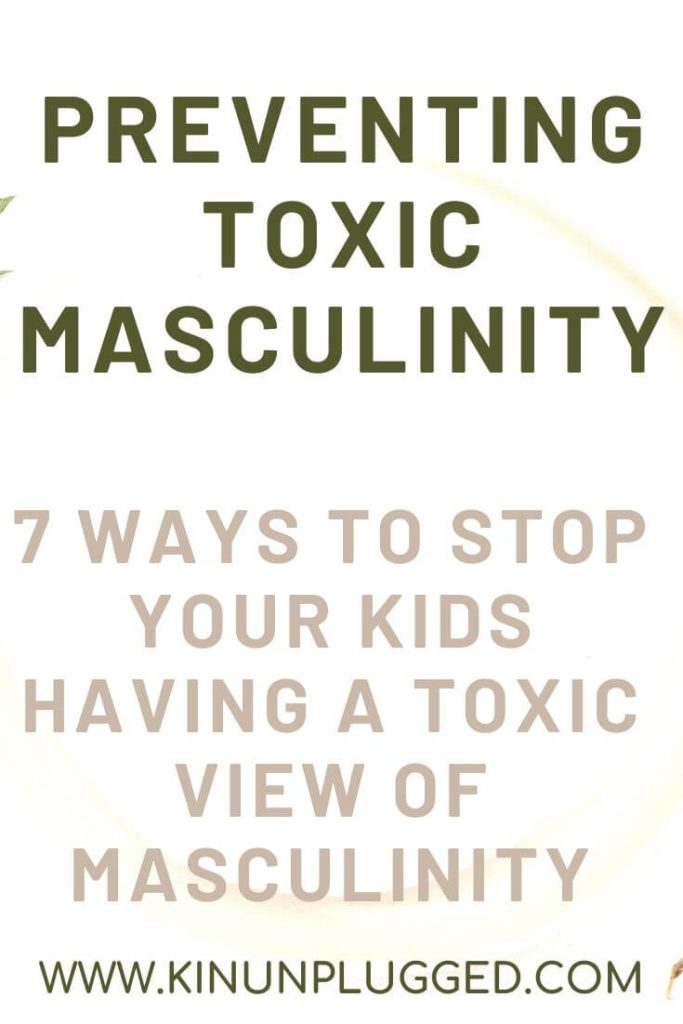What is toxic masculinity? Toxic masculinity is essentially everything about masculinity that society sees as being negative. It is a set of characteristics that may be evident in the home as well as families are made up and, arguably, headed by men.
Toxic fatherhood or a boy seeing toxic masculinity in childhood leads to the community around him or the society he is in becoming toxic. That is why I frequently say on this blog that a lot of society’s problems can end with family initiatives to tackle them.

Fatherhood and masculinity
Traditionally, masculinity is defined as ‘marked by stoicism, competitiveness, dominance and aggression [which] is, on the whole, harmful’. These are probably useful traits to have in order to make it through the more turbulent times in our lives. However, it is also unhealthy to be like this all the time. Toxic masculinity is cultivated where men are not encouraged or do not feel the need to dig deeper beneath the surface and look past the negative stereotypes put on them by society. Toxic masculinity comes about when men take on those negative labels and embody them.
Men need to be aware that it is alright to show some vulnerability.
Fathers need to show their sons that it is alright to be caring, sweet and loving. It is perfectly normal for a man to be sensitive, to cry and feel some amount of insecurity sometimes. You do not have to be hard and tough all the time.
“But by far the worst thing we do to males — by making them feel they have to be hard — is that we leave them with very fragile egos. The harder a man feels compelled to be, the weaker his ego is.” – Chimamanda Adichie (We Should All Be Feminists)
READ: Family – A Son’s Experience

It is really up to society to redefine what masculinity is. For example, it should not be unusual for a father to take on an equal or even larger share of childcare duties but in the large majority of the world, it is. More than being seen as normal, men providing childcare to their children should be seen as being consistent with masculinity.
At the moment, and in most social settings, men who try to balance parenting and work or even put parenting before work have their masculinity questioned by others and also by themselves.
Growing up with toxic masculinity
When a child grows up in a family with toxic masculinity as its rhetoric, they are made to feel like a male and female have definite, fixed roles in the home and in society in general. They are also taught, perhaps indirectly, that boys and girls or men and women are supposed to have certain feelings or not feel certain things based on their gender.
“Our children are too vast to fit themselves inside these rigid, mass-produced bottles. But they’ll lose themselves trying.” – Glennon Doyle (Untamed)
For example, a child who grows up with toxic masculinity may believe that it is wrong for boys and men to cry or to do the cooking at home. Boys in this type of environment might even find it difficult to establish and maintain true friendships and relationships with others as they are unable to fully open up and be themselves with them.
In addition, addiction may be a result of growing up around toxic masculinity. The inability to freely be themselves may leave them unable to reject certain vices if those vices are presented to them as being a necessary component of being or becoming a man. For example, if their peers pressure them to drink or do drugs on the basis of all the older boys at school doing it, they may find it difficult to decline.
Speaking of alcohol and drugs, another example is that, should they find themselves facing any addiction issues, the vulnerability of speaking to someone about their struggle might be too much for them to cope with. The issues therefore go unchecked and are likely to escalate.

How to prevent toxic masculinity in our sons
“As mothers raising sons, we have the power to change the trajectory of not only our own sons’ lives, but also of the culture at large.” – Melia Keeton Digby (The Hero’s Heart: A Coming of Age Circle for Boys)
Western stoicism puts forward certain principles that I believe are very helpful for boys to follow if they are to avoid falling into the modern, but very real, cliche of toxic masculinity. In essence, they are the following:
- Encourage them to have female friends
- Push them to spend time with aunts and grandmothers
- Encourage them to be open to trying new things
- They should study femininity – even if not in school, then in their own time
- You must push them to be both strong and caring and also protective of people weaker than themselves
- Pursue professional counselling or therapy
- Watch the kind of words spoken in the household – particularly by the father figure at home. Let’s look at some of the more commonly used phrases that promote toxic masculinity.
5 Toxic masculinity phrases you should not say at home
- Man up. What does that even mean? Is any show of emotion reserved for women only? Are all men just automatically supposed to know exactly how to navigate all of life’s struggles?
- Boys will be boys. This phrase is usually used when there has been a negative display of behaviour from a boy. It excuses bad behaviour on the basis of gender.
- Don’t be so sensitive. This is exactly the kind of phrase that makes little boys think that showing emotion is a sign of weakness. It invalidates their feelings.
- … is for girls. This stops boys from naturally exploring interests that society sees as being reserved for girls. For example, parents might tell their little boy that playing with a doll is something that only girls do. Interestingly, girls are never restricted from playing in this way.
- Stop acting like a girl. This phrase also gives both girls and boys the impression that certain behaviours are for girls only. It is also damaging for girls because the action being referred to is either negative or cast in a negative light and yet is being framed as an action that girls perform.
At a higher, institutional level, organisations need to be more conscious of the systems they put in place that make it easier for men to focus more on their own self-development and on their families. The same way that mothers push for flexibility in the workplace, fathers should also be trying to gain some leeway when it comes to things like paid parental leave and longer periods of paternity leave.
Our boys need to see their fathers more. They need to see the men around them focused on other things apart from work. This starts at the institutional level because, particularly in homes with single incomes, some men have no choice but to work the long hours that they do. They only aim to be able to take care of their families even if it is at the cost of spending too much time at work and too little with their families.
Workplaces must be able to give them the option to create more of a work-life balance. In order to achieve the societal balance that we need, I daresay, workplaces need to force men to achieve that work-life balance.
Let us always keep in mind that, in itself, masculinity is not toxic.





